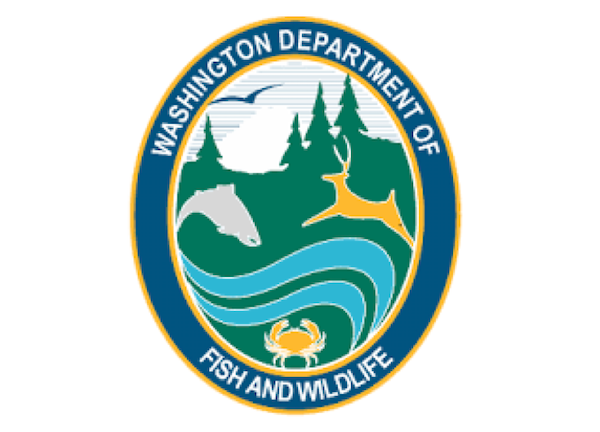Idaho Fish Report
Razor clam digs on coastal beaches postponed until further notice due to spike in marine toxins

by WA Department of Fish & Wildlife Staff
11-2-2022
Website
OLYMPIA – The recreational razor clam season on coastal beaches is postponed effective immediately until further notice, and includes digs from Sunday, Nov. 6 through Sunday, Nov. 13, shellfish managers with the Washington Department of Fish and Wildlife (WDFW) announced today.
Test results on razor clams indicate domoic acid levels are trending upward or, on most beaches, have exceeded the health guidelines for safe consumption set by Washington Department of Health (WDOH) officials.
"Recent storms appear to have resulted in a rapid increase in razor clam toxin levels, which requires immediate closures to these affected beaches," said Dan Ayres, WDFW coastal shellfish manager. "We'll continue to work closely with our partners at WDOH to closely monitor razor clam toxin levels and reopen harvest as soon as clams are safe to eat."
Domoic acid, a natural toxin produced by certain types of marine algae, can be harmful or fatal if consumed in sufficient quantities. More information about domoic acid, as well as current levels at ocean beaches, can be found on WDFW's domoic acid webpage.
WDFW shellfish staff will continue to regularly dig test samples of razor clams to monitor the situation. WDOH requires two test samples taken 10 days apart, must fall under the health guideline level before a beach can reopen for digging. WDFW will announce future opportunities when marine toxin tests show it is safe to do so.
For more information, go to the the DOH webpage. The 2022-23 Razor Clam Management Plan is available on the WDFW's website. To be notified of in-season rule changes as they are announced sign up for email notifications at wdfw.wa.gov/about/lists.
Tentative Dates
P.M. TIDES ONLY:
- Nov. 22, Tuesday, 5:22 p.m.; -0.6 feet; Long Beach, Twin Harbors, Copalis
- Nov. 23, Wednesday, 6:04 p.m.; -1.2 feet; Long Beach, Twin Harbors, Mocrocks
- Nov. 24, Thursday, 6:48 p.m.; -1.6 feet; Long Beach, Twin Harbors, Copalis (Thanksgiving Day)
- Nov. 25, Friday, 7:35 p.m.; -1.6 feet; Long Beach, Twin Harbors, Mocrocks
- Nov. 26, Saturday, 8:23 p.m.; -1.5 feet; Long Beach, Twin Harbors, Copalis
- Nov. 27, Sunday, 9:15 p.m.; -1.1 feet; Long Beach, Twin Harbors, Mocrocks
- Nov. 28, Monday, 10:10 p.m.; -0.5 feet; Long Beach, Twin Harbors, Copalis
- Dec. 4, Sunday, 4:09 p.m.; 0.4 feet; Long Beach, Twin Harbors, Copalis
- Dec. 5, Monday, 4:53 p.m.; -0.1 feet; Long Beach, Twin Harbors, Mocrocks
- Dec. 6, Tuesday, 5:33 p.m.; -0.5 feet; Long Beach, Twin Harbors, Copalis
- Dec. 7, Wednesday, 6:11 p.m.; -0.6 feet; Long Beach, Twin Harbors, Mocrocks
- Dec. 8, Thursday, 6:47 p.m.; -0.6 feet; Long Beach, Twin Harbors, Copalis
- Dec. 9, Friday, 7:23 p.m.; -0.5 feet; Long Beach, Twin Harbors, Mocrocks
- Dec. 10, Saturday, 7:59 p.m.; -0.3 feet; Long Beach, Twin Harbors, Copalis
- Dec. 11, Sunday, 8:35 p.m.; 0.0 feet; Long Beach, Twin Harbors, Mocrocks
- Dec. 12, Monday, 9:13 p.m.; 0.3 feet; Long Beach, Twin Harbors, Copalis
- Dec. 20, Tuesday, 4:14 p.m.; 0.0 feet; Long Beach, Twin Harbors, Mocrocks
- Dec. 21, Wednesday, 5:02 p.m.; -0.8 feet; Long Beach, Twin Harbors, Copalis
- Dec. 22, Thursday, 5:48 p.m.; -1.4 feet; Long Beach, Twin Harbors, Mocrocks
- Dec. 23, Friday, 6:35 p.m.; -1.8 feet; Long Beach, Twin Harbors, Copalis
- Dec. 24, Saturday, 7:23 p.m.; -1.9 feet; Long Beach, Twin Harbors, Mocrocks
- Dec. 25, Sunday, 8:10 p.m.; -1.6 feet; Long Beach, Twin Harbors, Copalis (Christmas Day)
- Dec. 26, Monday, 8:58 p.m.; -1.2 feet; Long Beach, Twin Harbors, Mocrocks
- Dec. 27, Tuesday, 9:47 p.m.; -0.5 feet; Long Beach, Twin Harbors, Copalis
- Dec. 28, Wednesday, 10:37 p.m.; 0.3 feet; Long Beach, Twin Harbors, Mocrocks
Additional information
The daily limit is 15 razor clams per person. Under state law, a daily limit consists of the first 15 clams dug regardless of size or condition, and each digger's clams must be kept in a separate container.
All diggers age 15 or older must have an applicable fishing license to harvest razor clams on any beach. Licenses may be purchased on WDFW's licensing website, and from hundreds of license vendors around the state. Options include a three-day razor clam license to an annual combination fishing license. WDFW recommends buying your license before visiting coastal beach communities.
The updated 2022-23 Razor Clam Management Plan is available on the WDFW's website.
The Washington Department of Fish and Wildlife works to preserve, protect, and perpetuate fish, wildlife and ecosystems while providing sustainable fish and wildlife recreational and commercial opportunities.


